Celebrating the missionary journey with Pope Francis in Papua New Guinea
In September, Pope Francis undertook an Apostolic Journey throughout Southeast Asia, visiting Papua New Guinea, where the Missionaries of the Sacred Heart have been ministering since the 1800s.
Cardinal John Ribat MSC, Archbishop of Port Moresby and Papua New Guinea’s first cardinal, greeted the Pope, telling him, “I offer you a warm welcome to this beloved country.”
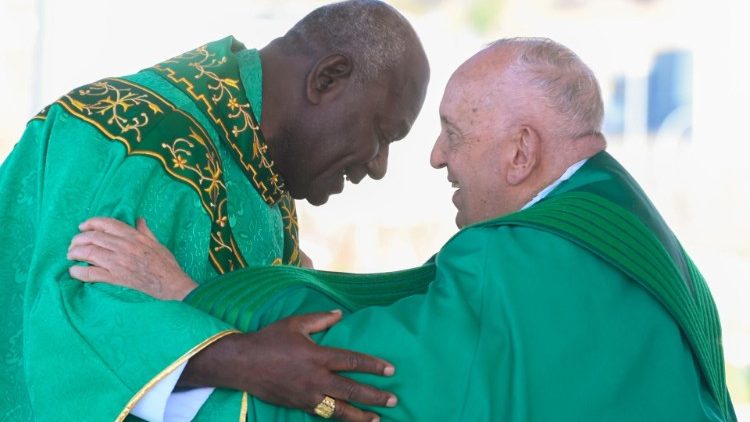
On Sunday, September 8th, the Holy Father presided over Mass for approximately 35,000 Catholics at Sir John Guise Stadium in Port Moresby. Cardinal John Ribat MSC joined the Papal Mass, where beautiful images of Our Lady of the Sacred Heart and Blessed Peter To Rot were displayed on the altar.
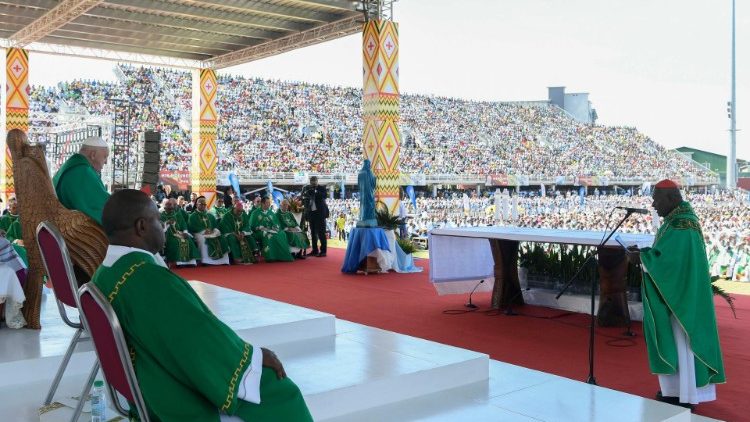
The Missionaries of the Sacred Heart arrived in Papua New Guinea in September 1882, and have been a strong and constant presence for good since, “making them an intrinsic part of the history and mission of the Catholic Church in the country and a point of reference to this day, including in the education and healthcare sectors.” (Claudia Torres, Vatican News)
Speaking to Vatican News earlier this summer, Superior General of the Missionaries of the Sacred Heart Fr Mario Abzalón Alvarado Tovar MSC reflected, “In fact, since 1881, we have been in Papua New Guinea, marking the beginning of the modern era of the Church there.”
“There had been minimal presences many centuries before, in very ancient times, but since 1881, we have been present continuously. We are, in a sense, the pioneers of the ecclesial growth in Papua New Guinea.” (Renato Martinez, Vatican News)
Archbishop Rochus Joseph Tatamai MSC, the Archbishop of Rabaul, also spoke at length with Vatican News ahead of Pope Francis’ visit. Touching on the origins of the mission in Papua New Guinea and the upcoming canonisation of the Blessed Peter To Rot (a lay Missionary of the Sacred Heart who was martyred for the faith in the 1940s), the Archbishop was optimistic about the Holy Father’s visit, noting that it would encourage “a greater revival and reawakening of the faith amongst the elderly, the seniors, the oldest, but also amongst our younger generation”, in a “vibrant Church” with a “vibrant faith”. (Claudia Torres, Vatican News)
Indeed, during his visit to the northwestern coastal city of Vanimo, Pope Francis encouraged all present to embody the missionary spirit, as we can all be “missionaries where we live: at home, at school, in the workplace”. He reflected on the fact that love is stronger than fear and “destructive behaviours”, and reminded us that “its beauty can heal the world, because it has its roots in God”. (Devin Watkins, Vatican News)
This is one of the most simple, yet powerful, messages to come from the Holy Father’s trip to Papua New Guinea: “The beauty of love can heal the world.” (Linda Bordoni, Vatican News)
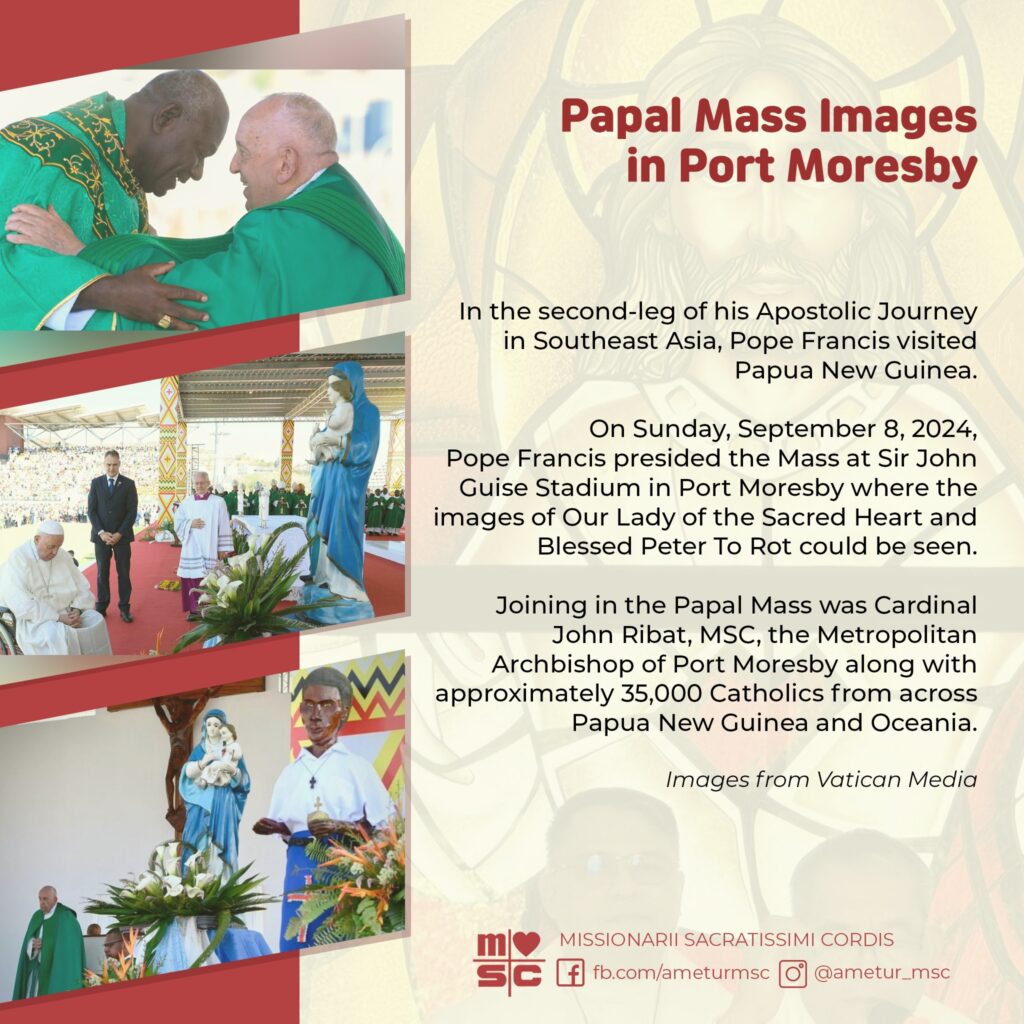
Images via Vatican News and the Ametur MSC Facebook page.
*
MSC Cardinal John Ribat speaks out on climate change
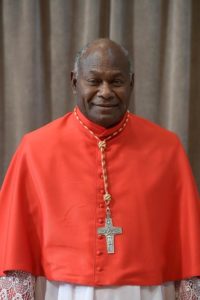 With climate change becoming a growing concern in today’s world, Cardinal John Ribat MSC, Archbishop of Port Moresby, Papua New Guinea, has spoken out about the vital importance of awareness and action.
With climate change becoming a growing concern in today’s world, Cardinal John Ribat MSC, Archbishop of Port Moresby, Papua New Guinea, has spoken out about the vital importance of awareness and action.
French Provincial Leader Fr Daniel Auguié MSC spoke with Cardinal Ribat in Port Moresby recently, and the interview was published in the French provincial bulletin Entre Nous.
“I think it’s right, good, and necessary for someone to take those issues and bring them to the governments here and around the world,” says Cardinal Ribat. “And what I defend most vigorously is the hierarchy of considerations. In this part of the world, we live in islands, archipelagos, and we are the first concerned by the rise of the sea level, and the global warming of the planet.”
“This is a gigantic problem. It will affect us all.”
“By 2050, many islands will be gone,” he continues. “Papua New Guinea is already seeking shelter for the islanders who will be affected in the next few years. I recently visited two of our islands, including Andra. They are building dikes. This island has about 700 inhabitants. The living space diminish visibly. They showed me how far their island was before. A huge part is already submerged. We went around the island on foot in twenty minutes. The question is simple: what will we do when this island is completely gone?”
This is a real concern for local families whose homeland is quite literally disappearing before their eyes. “Currently, most locals say they will ask relatives or relatives who live in this or that island to welcome them,” says the Cardinal. “But we know that this is not the solution because these other islands will disappear too. This is a gigantic problem, because global warming will not spare any archipelago, no island. It will affect us all.”
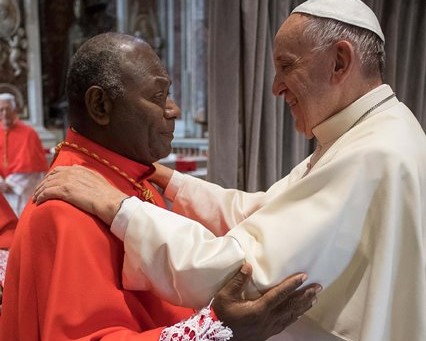
The effects of climate change on a national scale in Papua New Guinea are very clearly representative of a much larger concern on a global scale. “This first question posed by the observation of the effects of global warming brings another question as to its causes,” Cardinal Ribat explains. “When we talk to people in the islands, they ask us, ‘Why does this happen? There was nothing to let us foresee …’ Some of them now hear and understand that this is actually the result of gas emissions throughout the planet, and in particular from industrialised countries. The people of the Pacific are coming together today to demand the removal of greenhouse gas emissions from the atmosphere and a change in lifestyle around the world.”
“We are urged by Pope Francis to hear not only the cry of the poor, but also the cry of the earth.”
Writing for the Spring 2019 JPIC Chevalier Family bulletin, Fr André Claessens MSC emphasises the necessity for increased awareness and conscious change. “Climate change asks for huge investments,” he writes, “but it also generates profits and it will benefit future generations. Climate-related disasters caused about 300 billion euros worth of damage in 2017, and the WHO calculated that in Europe alone, pollution costs more than 1.6 trillion dollars every year. Two hundred species are in danger of becoming extinct. Greta Thunberg said it clearly: ‘We have all the facts and solutions. All we have to do is to wake up and change’.”
As we consider how we can contribute to positive change, Fr Claessens sums it up in a nutshell: “We are urged by Pope Francis to hear not only the cry of the poor, but also the cry of the earth. We have had thirty years of pep-talks… Now action and only action will give hope!”